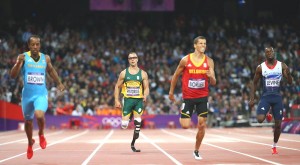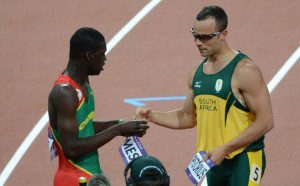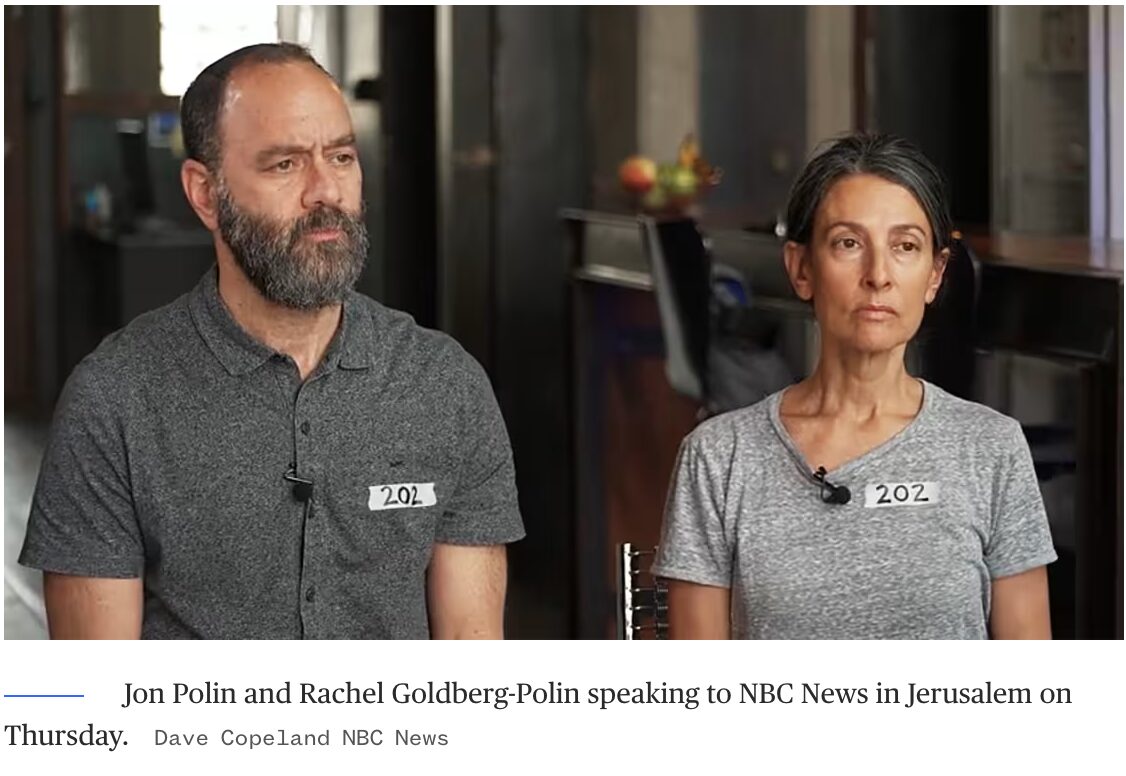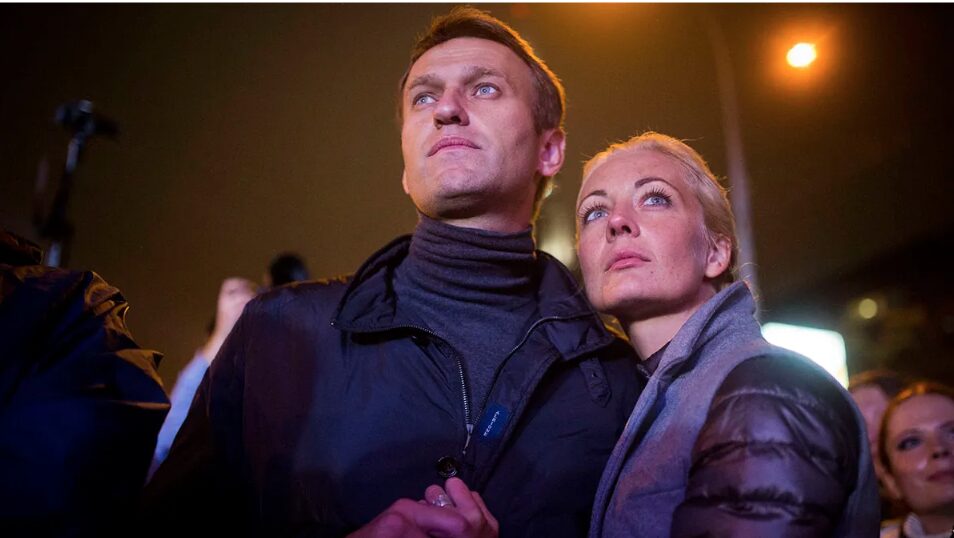 There are those that argue that competition is a basic human instinct. No doubt an event such as the Olympics brings out the best and the worst that this human instinct has to offer.
There are those that argue that competition is a basic human instinct. No doubt an event such as the Olympics brings out the best and the worst that this human instinct has to offer.
There is another Olympics going on simultaneously in London—the Paralympics. While the Olympics draw over 13,000 athletes from 205 Olympic teams there are 1,100 athletes from 170 Olympic teams participating in the Paralympics. There are three athletes though who “crossed over” to compete in the Olympics though they would qualify for the Paralympics, the one that has stirred controversy, the double amputee Oscar Pistorius.
Known as “the fastest man on no legs” Pistorius is the world record holder in the 100, 200 and 400 meter events among para-athletes. He runs with the aid of Cheetah Flex-Foot carbon transtibial artificial limbs by Össur. He was born without fibulas (commonly known as the calf bone), and both his legs were amputated below the knee when he was still an infant. He has been fighting to compete with able-bodied athletes in the Olympics since before the 2008 games in Beijing. Though he qualified, the track’s governing body barred him from running, citing his blades, known as Cheetahs, as a competitive advantage. In May of 2008 the Arbitration Court for Sport over-ruled the International Association of Athletics Federations banning the use of his Cheetahs. Pistorius then had to be faster on his feet to qualify—an effort that took another four years.
Pistorius’ time in the 400 meter quarterfinal race allowed him to advance to the semifinals which included Kirani James, the world champion at 400 meters. Pistorius was well behind the other runners (a second makes a big difference) in the semifinal heats.
In one of the more touching moments from these Olympic Games, Kirani James (who won the gold medal the next day in the finals, a first gold medal for the country of Grenada) made a bee line for Pistorius after the semifinal race. James hugged him and then began taking off his name bib– signaling to Pistorius that he wanted a trade. In front of the world, James and Pistorius exchanged names.
The commentators suggested that James was trading to have a souvenir. I would suggest that we listen to James’ own words and then his motivation becomes clear.
“He’s an inspiration for all of us,” James said. “He’s very special to our sport. He’s a great individual – it’s time we see him like that and not anything else.”
Kirani James could have easily ignored the slowest runner in his semifinal heat. Instead, we were given a moment, a small gesture from one human to another—we are the same—you are me and I am you.











0 Comments